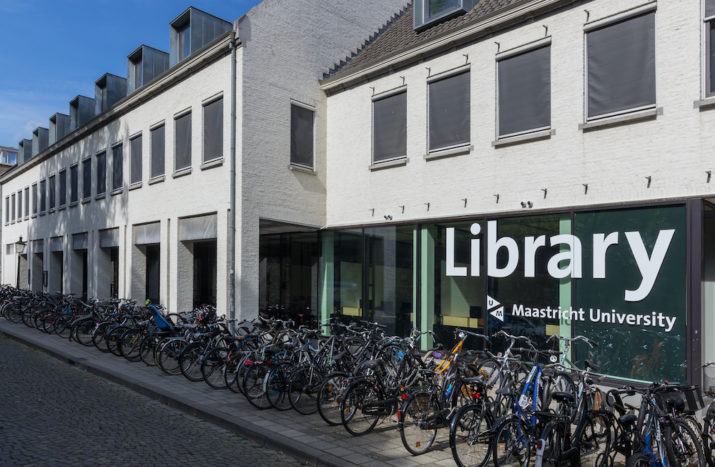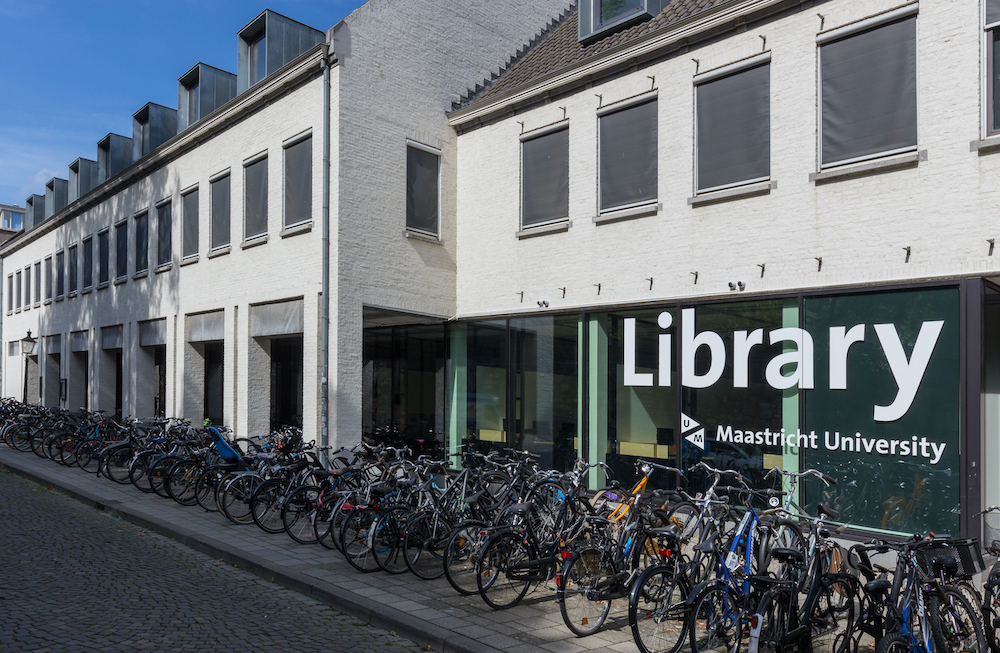

This is part of a Campus Spotlight on Maastricht University, and an introduction to a Roundtable on Maastricht University Student Research.
Students in Maastricht University’s Bachelor in European Studies (BA ES) complete their studies with a BA thesis, an individual research project supervised by a member of our teaching staff. The research and writing process takes approximately six months, during which students receive individual feedback from their supervisor, meet in small groups to discuss their research, and have the opportunity to attend several other supporting activities, including a BA ES thesis conference. Our students tend to look into a broad range of topics, from Euroscepticism in the European Parliament, to decolonization and its impact on contemporary societies in and outside of Europe. They draw from questions regarding the development of democracy in Europe or culture in Europe’s border regions. As such, their topics represent our BA’s focus on Europe in its widest sense, as is for instance also outlined in Chris Rumford’s Handbook of European Studies (SAGE, 2009).
This collection of student works brings together shortened versions of four of those BA theses. The contribution by Johanna Hvalic looks at the role played by women in British imperialism. Her research, supervised by Lies Wesseling, takes an interdisciplinary perspective on one woman’s case, Lady Hester Lucy Stanhope, by combining insights from different fields, including Edward Said’s famous 1978 book Orientalism. Johanna unveils that Stanhope “going native” conflicted not only with some of the existing ideas on imperialism, but also the prevailing gender norms.
The other three contributions all look at aspects of climate change and global warming, but take rather different perspectives. Kirstin Herbst looks at the policy level, through a comparison of implementation instruments of the European Union and the United Nations Framework Convention on Climate Change. Kirstin’s research, supervised by Clara Weinhardt, shows that the European Union’s program is more inclusive in terms of networking and supervision, but less structured when it comes to responsibilities in the implementation of these policies.
Charlotte Heinrich and Dominik Schmidt both study debates about climate change and global warming from the perspective of citizens and democracy. Charlotte’s research was supervised by Yoram Carboex and specifically looks at the perception of the different human rights enshrined in the European Union’s Charter of Fundamental Rights, drafted in 2000. Through a survey analysis, she shows that rights related to climate change are high on Europeans’ agenda, but are of little prominence in the Charter and related academic debates.
Finally, Dominik’s research, supervised by Sjaak Koenis, takes a critical look at the climate movement started by Greta Thunberg. Based on a discourse analysis of Thunberg’s public speeches, Dominik finds interesting parallels between her wording and the wording used by populist politicians. He argues that Thunberg’s “post-political populism” may be as potentially damaging for democracy as is the supposed opposition between the “normal” citizens and the political elite, put forward by populist politicians.
In short, these three contributions brought together here form a good representation of the multidimensional focus of the discipline of European Studies, in general, and the research conducted by Maastricht University’s students, in particular. I hope you will enjoy reading these papers as much as I did.
-
“Post-Political Populism as the Elephant in the Room: A Critical Discourse Analysis of Greta Thunberg’s Public Speeches on Climate Change” by Dominik Schmidt
-
“Women “Going Native” During the Early Victorian Age: The Case of Lady Hester Lucy Stanhope (1776 – 1839)” by Johanna Hvalic
-
“Delegating, but How? A Comparison between the EU and the UNFCCC as Principals in Public Climate Finance Implementation” by Kirstin Herbst
Patrick Bijsmans is Associate Professor in Teaching and Learning at Maastricht University’s Faculty of Arts and Culture. He teaches courses in European Studies at BA and MA level. Patrick was program director of the BA in European Studies from 2010 to 2014 and currently coordinates the staff professionalization program CPD. His research is concerned with media and Euroscepticism, but also with topics pertaining to teaching and learning in European Studies.
Photo: Maastricht, Netherlands 09/06/2019 Downtown Maastricht University library for the faculties of Law, Social Sciences, Business, Economics, Arts, Knowledge Engineering, College and Datascience | Shutterstock
Published on November 10, 2020.




